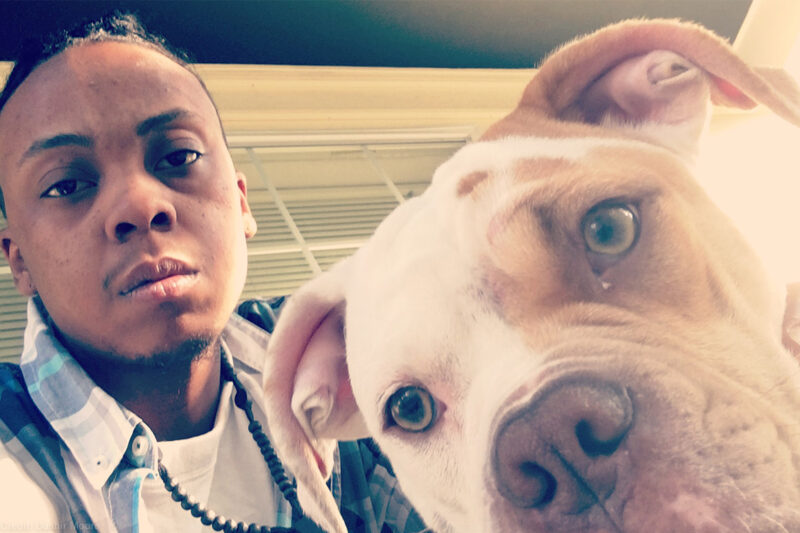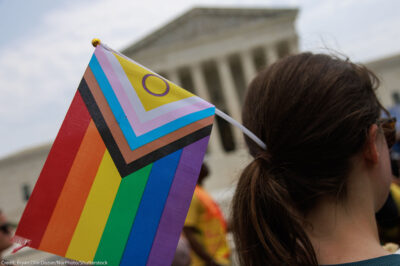I Moved to Colorado for Freedom as a Transgender Man. Instead, I Found Discrimination.


This piece was originally published in The Denver Post.
When I was a kid, my mom gave me Barbies, but I preferred to play with G.I. Joes. By high school, I was dressing in my brothers’ clothes. At Georgia State University, I first heard the word to name who I am: transgender.
I began living as male. I shaved my head and started getting fade haircuts. I started taking testosterone. My new best friend, the first to accept me for who I am, was another Black man. I was coming into myself, and that felt so good.
Then my best friend was shot and killed in a robbery.
After his death, I would drive around Atlanta, crying. I had the feeling I had to get out of the South. It was like Atlanta was a girl and she broke my heart — I didn’t want to see her anymore.
I heard that Colorado has a great lifestyle and excellent trans health care, with doctors specialized in gender-confirming surgery. In my soul, I wanted to go somewhere where I could be myself.
I packed my Honda CR-V and my puppy and in October 2017, we drove almost 1,400 miles. My depression lifted when I saw the "Welcome to Colorado" sign, with the sun rays poking through the clouds. I was going to build a new life as a man.
I updated the gender marker on my driver’s license to male. In February 2018, I started a job at InnoSource, a staffing agency, as a customer service rep. I started paying premiums for the company’s United Healthcare plan and signed up to work with the trans health coordinator at Denver Health.
And I decided to get chest surgery. This was going to be a pivotal moment in my transition. I had spent years wearing a compression shirt, but I wanted to get those breasts off my chest. I never wanted a hysterectomy or bottom surgery — chest surgery was going to be the gender-confirming surgery of my life.
That May, I called the company that processed my health claims, UMR, twice and representatives said the procedure was covered at 70 percent and didn’t need preauthorization. (I didn’t know Denver Health called UMR for authorization anyway.)
My surgery took place on May 21. I woke up so happy. There was no bleeding or bad bruising, and the pain was manageable. I felt free.
I had no idea that after my surgery had begun, UMR had contacted Denver Health to deny me coverage. I only found out after I got a call at home.
After some investigation, I learned that my employer had negotiated a plan that excluded coverage for gender transition, including “treatment, drugs, medicines, services, and supplies for, or leading to, gender transition surgery.”
Suddenly, I had a $30,000 medical debt. Doctors had found three lumps in my left breast, but I skipped my post-op appointment because I couldn’t afford to pay.
The next week, my dog — a sweet English bulldog who had been my biggest support — got sick. He needed a $1,400 surgery. I should have been able to afford that, but I had just made a big payment toward my surgery; I had nothing. I asked family and friends to contribute and set up a GoFundMe page, but my dog died a few days later. I was devastated.
Back at work, I began to experience anxiety attacks. I’d stand in the parking lot, my heart racing, sweat dripping down my back, feeling dizzy. Eventually, I resigned.
I felt like this company’s anti-trans bigotry had taken everything — my pride in my job, my dog’s life, my love for my new home, and my own joy in who I am.
I am fighting for my rights because I want that joy, that hope, that love, and that pride back. And I want to make sure that no other vulnerable person is unable to get basic health care because a company discriminates and says who they are is not covered.
Dashir Moore lives in Colorado Springs. Together with the ACLU, he is challenging the denial of health care because he is transgender.




